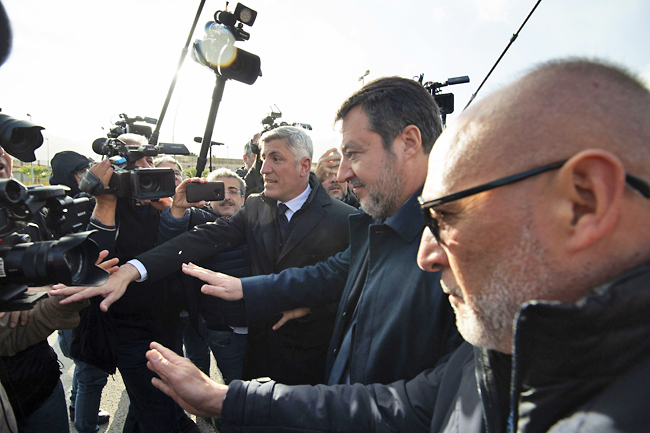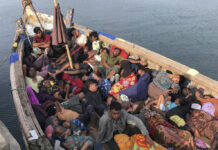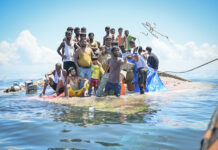ROME (AP) – A court in Sicily announced its verdict yesterday on whether Italy’s vice premier, Matteo Salvini, was guilty of illegally detaining 100 migrants aboard a humanitarian rescue ship when he was interior minister.
Salvini faces up to six years in jail if convicted on charges of kidnapping for the 2019 incident when he refused to allow the migrants to leave the Open Arms rescue ship at Italy’s southernmost island of Lampedusa.
A sentence of over five years would also automatically bar him from office. However, verdicts in Italy are only considered final once all appeals are exhausted, a process that can take years. Salvini has made clear he will not step down.
Now transport minister in Premier Giorgia Meloni’s far-right-led government, Salvini has defended himself, saying he acted to protect Italy’s borders.
“I have kept my promises, combating mass immigration and reducing departures, landings and deaths at sea,” Salvini said yesterday as he arrived in court.

“Whatever the sentence, today is a good day for me because I am proud to have defended my country. I would do everything I did again,” he added.
During the standoff, some of the migrants threw themselves overboard in desperation as the captain pleaded for a safe, close port. The remaining 89 people onboard were eventually allowed to disembark in Lampedusa by a court order.
Salvini took a hard line against migration as interior minister from 2018-2019 in the first government of former Premier Giuseppe Conte. He refused humanitarian rescue ships port and accused the groups that rescued migrants at sea of effectively encouraging smugglers.
Salvini has the support of Meloni, other government ministers and anti-migrant European lawmakers, as well as Elon Musk, who expressed his support in a message on the social media platform X.
Since she took power in 2022, Meloni has moved to crack down on migration, striking deals with northern African nations to prevent departures while also setting up centres in Albania aimed at vetting migrants rescued at sea in the non-European Union country without allowing them to enter Italy.



















































